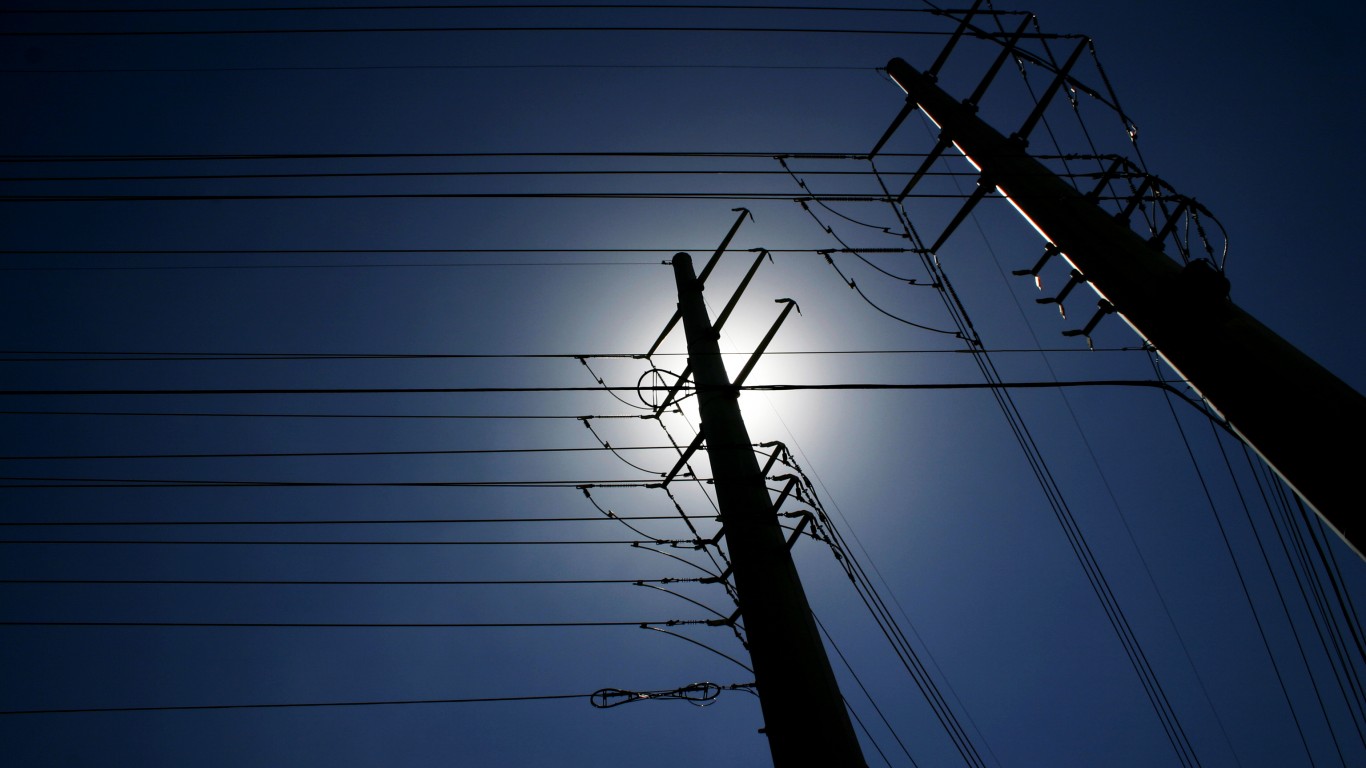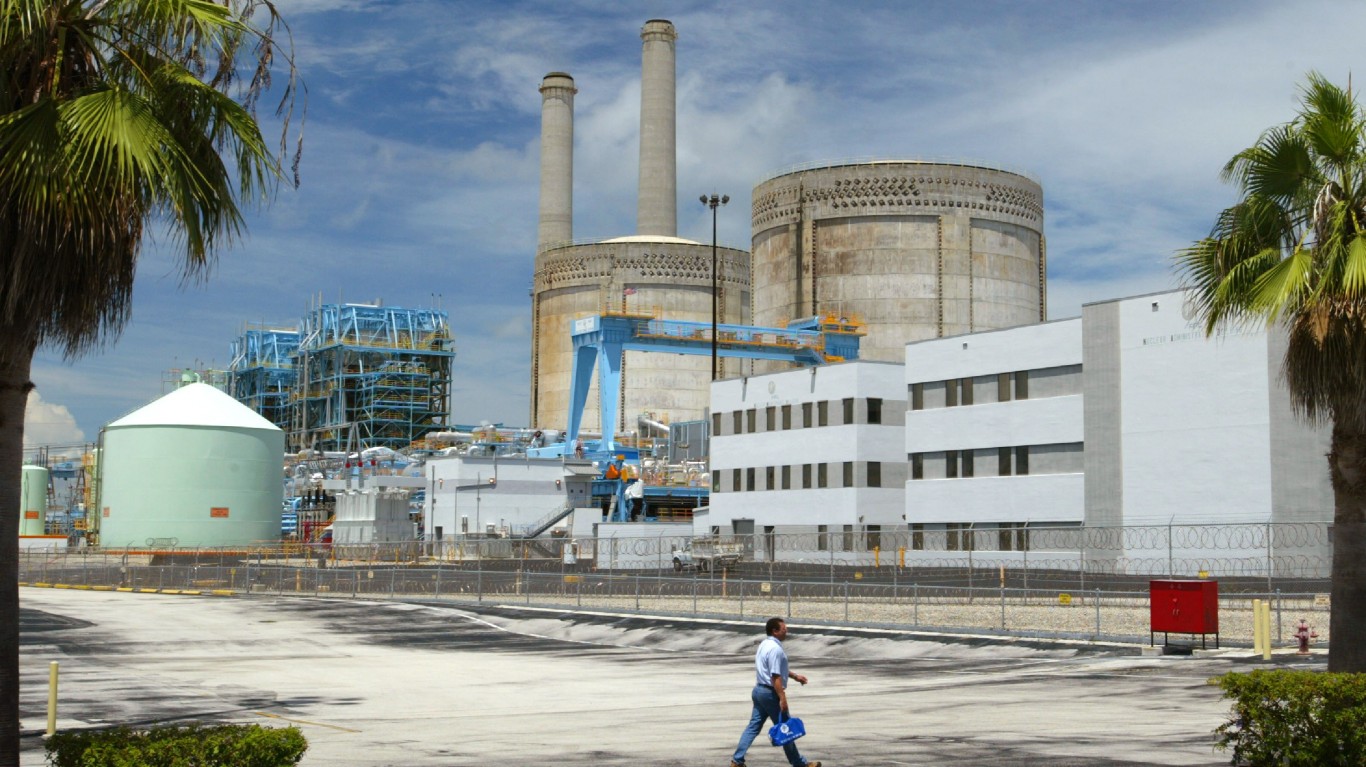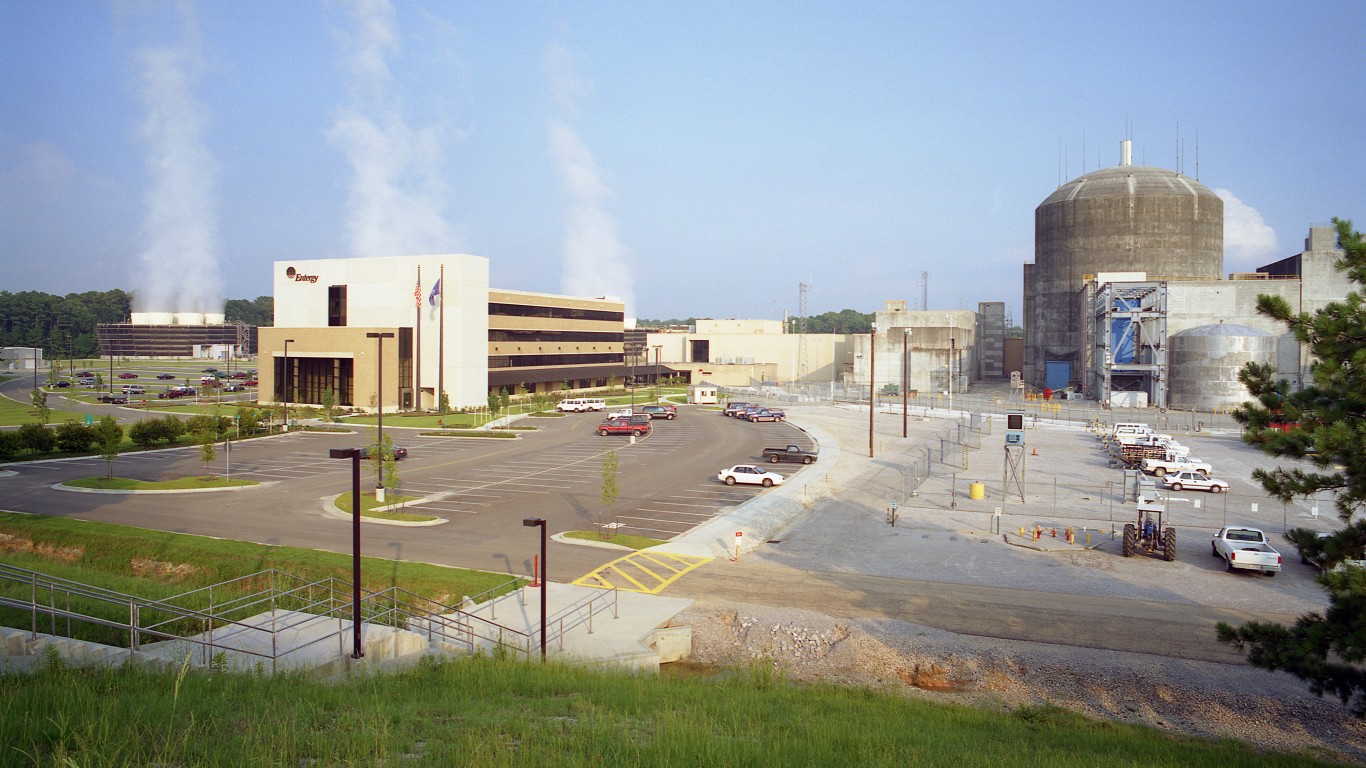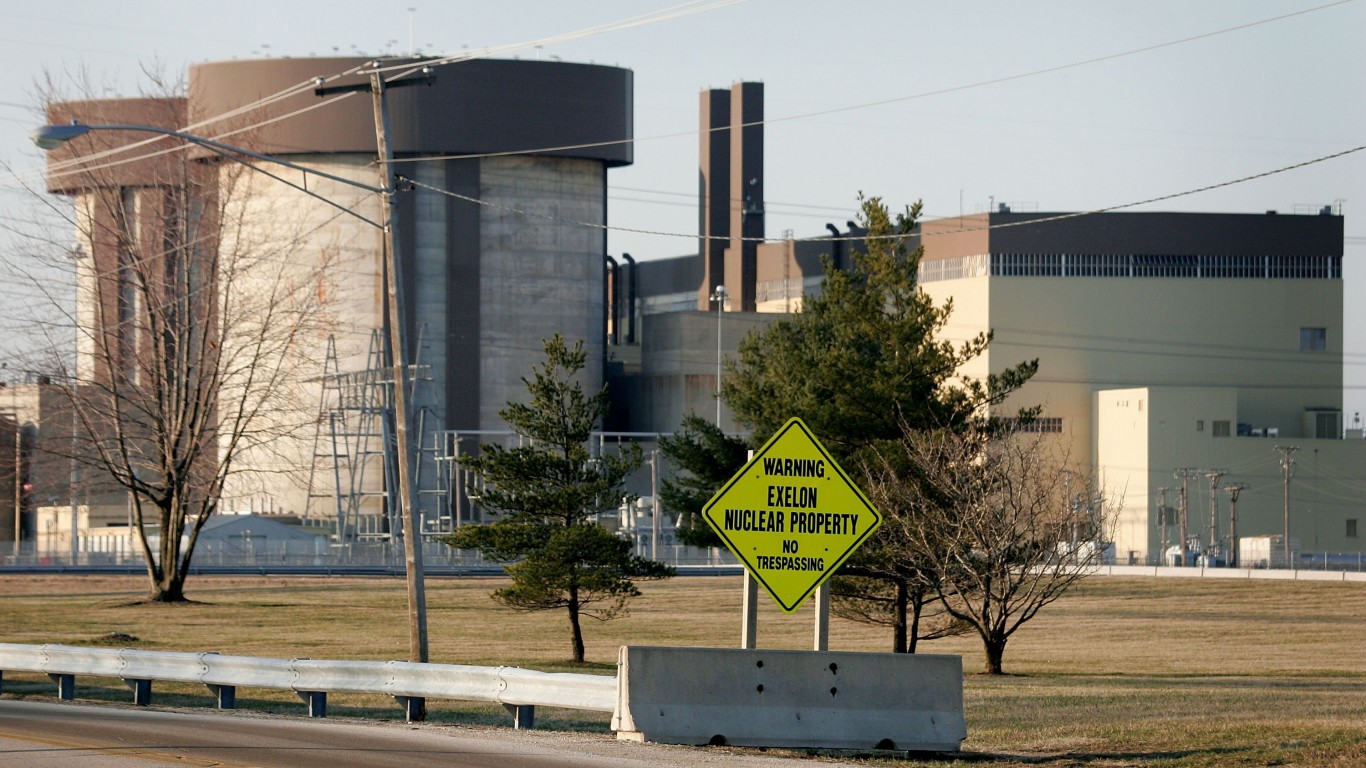Investing
Data Centers Electricity Appetite Is Endless: Grab These High-Yield Dividend Utility Stocks Now

Published:

Due to their continuous operations, data centers consume electricity constantly. These operations involve running large numbers of servers, cooling systems, networking equipment, and other infrastructure. The amount of electricity data centers use varies widely based on size, capacity, efficiency, and geographic location, but the demand is always there.
The numbers are staggering as data centers collectively account for a notable portion of global electricity usage. Estimates suggest that data centers worldwide consumed around 200 terawatt-hours (TWh) of electricity in 2020, which is about 1% of global electricity demand. Experts think that the figure has increased dramatically since then.
We decided to screen our 24/7 Wall St. utility stock database, looking for the highest-yielding stocks that could benefit from this massive increase in electricity use. All offer stable and dependable passive income, and all are rated Buy at top Wall Street firms.
The S&P 500 utilities sector has gained nearly 19% from its low in mid-February and has outperformed the large-cap benchmark index by 3%. Equities will be hit if the major stock market indices significantly decline. However, history shows that stodgy utility stocks will likely hold their ground much better than high-flying technology stocks, especially those chasing Artificial Intelligence mania.
With a product always in demand and the summer heat right around the corner, high-yielding utilities may be the best idea now for worried investors.

This Dividend King is way off the radar for many but is among the safest plays now and pays a hefty 4.56% dividend. Through its subsidiaries, Black Hills Corp. (NYSE: BKH) operates as an electric and natural gas utility company in the United States.
It operates in two segments:
The Electric Utilities segment generates, transmits, and distributes electricity to approximately 220,000 electric utility customers in:
The company also owns and operates 1,482 megawatts of generation capacity and 0,024 miles of electric transmission and distribution lines.
The Gas Utilities segment distributes natural gas to approximately 1,107,000 natural gas utility customers in:
In addition, the company owns and operates 4,713 miles of intrastate gas transmission pipelines, 42,222 miles of gas distribution mains and service lines, seven natural gas storage sites, approximately 50,000 horsepower of compression, and 515 miles of gathering lines.
Black Hills also constructs and maintains gas infrastructure facilities for gas transportation customers, provides appliance repair services to residential utility customers, and constructs electrical systems for large industrial customers.
Lastly, it produces electric power through wind, natural gas, coal-fired generating plants, and coal at its coal mine near Gillette, Wyoming.

With a strong 5.72% dividend and residing in a highly safe sector, this stock is a steal at current trading levels. Canadian Utilities Ltd. (OTC: CDUAF) engages in the electricity, natural gas, renewables, pipelines, liquids, and retail energy businesses in Canada, Australia, and internationally.
It operates through three segments:
The ATCO Energy Systems segment provides regulated electricity transmission and distribution services in:
This segment also provides integrated natural gas transmission and distribution services in Alberta, the Lloydminster area of Saskatchewan, and Western Australia. It owns and operates approximately 9,100 kilometers of natural gas pipelines, 11 compressor sites, approximately 3,600 receipt and delivery points, and a salt cavern natural gas storage peaking facility near Fort Saskatchewan, Alberta in Canada.
The ATCO EnPower segment provides:
The Corporate & Other segment retails electricity and natural gas, and it provides whole-home solutions.

Many of the Wall Street firms we cover are still very positive on utilities, and this company pays a strong 5.03% dividend.
Dominion Energy Inc. (NYSE: D) operates through four segments:
The Dominion Energy Virginia segment generates, transmits, and distributes regulated electricity to residential, commercial, industrial, and governmental customers in Virginia and North Carolina.
The Gas Distribution segment engages in
This segment serves residential, commercial, and industrial customers.
The Dominion Energy South Carolina segment:
The company’s portfolio of assets included approximately:

This is another excellent idea now, located in a growing part of the country and paying a hefty 4% dividend. Duke Energy Corp. (NYSE: DUK) and its subsidiaries operate as an energy company in the United States.
It operates through two segments:
The EU&I segment generates, transmits, distributes, and sells electricity in the Carolinas, Florida, and the Midwest.
To develop electricity, Duke Energy uses the following:
This segment also sells electricity to municipalities, electric cooperative utilities, and load-serving entities.
The GU&I segment distributes natural gas to
The segment also invests in pipeline transmission projects, renewable natural gas projects, and natural gas storage facilities.

This top utility stock always makes sense for conservative investors and pays a rich 4.04% dividend. Together with its subsidiaries, Entergy Corp. (NYSE: ETR) produces and distributes electricity in the United States.
It operates in two segments,
The Utility segment generates, transmits, distributes, and sells electric power in portions of:
The company also distributes natural gas.
The Entergy Wholesale Commodities segment is involved in:
The company generates electricity through gas, nuclear, coal, hydro, and solar sources. It sells energy to retail power providers, utilities, electric power co-operatives, power trading organizations, and other power generation companies.
Its power plants have approximately 24,000 megawatts (MW) of electric generating capacity, which includes 5,000 MW of nuclear power.
The company delivers electricity to 3 million utility customers in Arkansas, Louisiana, Mississippi, and Texas.

This top utility stock makes good sense now for conservative accounts and pays a dependable 4.04% dividend. Exelon Corp. (NYSE: EXC) is a utility services holding company engaged in the energy distribution and transmission businesses in the United States and Canada.
The company purchases and regulates retail sales of electricity and natural gas and the transmission and distribution of electricity and natural gas to retail customers.
It also offers support services, including:
The company serves:
∴
Start by taking a quick retirement quiz from SmartAsset that will match you with up to 3 financial advisors that serve your area and beyond in 5 minutes, or less.
Each advisor has been vetted by SmartAsset and is held to a fiduciary standard to act in your best interests.
Here’s how it works:
1. Answer SmartAsset advisor match quiz
2. Review your pre-screened matches at your leisure. Check out the advisors’ profiles.
3. Speak with advisors at no cost to you. Have an introductory call on the phone or introduction in person and choose whom to work with in the future
Thank you for reading! Have some feedback for us?
Contact the 24/7 Wall St. editorial team.